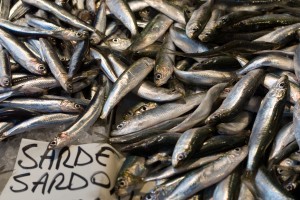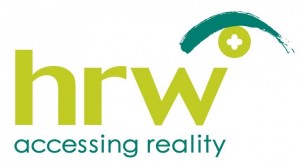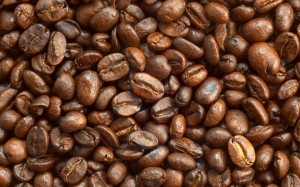According to new research, Brits aged over 50 feel they are in better shape than the nation’s 30-somethings.
65% also revealed they view 40 as the average prime of life, with two-thirds of

Omega 3 – come and get it
British 50-somethings stating they feel up to 10 years younger than they are actually are.
Yet in contrast, the average 35-39 year old feels just one year better off than their real age.
A combination of active pursuits like gardening, healthy diets and regular fish oil or algae-based Omega-3 DHA and EPA supplements means that nearly 2-in-5 (37%) of 50-59 year olds say they feel fit and well, compared to 1-in-3 (33%) of those aged 35-39.
A new survey spoke to more than 1,000 UK residents aged 35 or over and found that as a nation, we are staying active much later into life. Specifically, results found that individuals who take Omega-3 supplements feel on average three years younger than those who don’t.
We spoke to Lucy Jones a nutritionist at Nutrifit Health and Dr. Ali Kavandi who is Cardiologist at Royal United Hospital Bath NHS Foundation Trust.
PATIENTTALK.ORG: So we are talking about some research that suggests over 50’s feel fitter and healthier then over 30 somethings and I was hoping Dr Kavandi you could just run us through the report that’s called “The Prime of Life Report”?
KAVANDI: Yes no problem. So, I mean, this was very interesting, it was a survey essentially and I think the thing I’ve picked up on and what I think is the most interesting thing is the perception of the public and our patients about health and links between diet and health in the long term. What becomes very clear in terms of the headline findings is that there is a lot of confusion about health and a diet that is linked to health. Most people’s definition of health in fact is confused and it seems that in the modern world most people think of health in terms of what you would think of wellbeing so they think a heathy diet is one that leads to subjective things like more energy, better hair, clean skin. Whereas from a medical perspective we are very clear the definition of health is the prevention of illness so what we regard to be a healthy diet is one that prevents illness down the line and from my perspective especially cardiovascular illness.
PATIENTTALK.ORG: That is very interesting. Lucy I was wondering if you could perhaps expand on that a bit this idea between what sorts of makes you feel perky and what is actually fundamentally good for you and nutrition?
JONES: Well this is exactly is 68% of people that are saying they feel heathier and are fitter were actually looking at more appearance focused health concerns so things like their teeth, their skin, their hair whilst only 7% were concerned about their heart health and we see this a lot that actually the foundations of our health, the things we really need to protect our heart, our liver, our brains we often don’t think about problems have already happened and when it comes to nutrition and lifestyle prevention is so much better than cure and unfortunately for many of us we start turning our attention to it too late. We know that damage starts to build up in very early, as early as your twenties and the steps you take then to have a positive change on your diet, to start regular exercise, will really lay the foundations of better health when you get into your 50’s and 60’ and we really need a culture change to support that. That people need to be paying attention to their long term health. It might not make a change to how you feel tomorrow, even though this survey suggested it does. People who were taking Omega 3 supplements this survey for feeling 3 years younger than people who didn’t and this might be a reflection that if you start taking positive steps for your health you in fact feel better for it.
PATIENTTALK.ORG: And Doctor Kavandi is there, why do you think over 50’s start to feel fitter and healthier then 30 something’s is it because as they get older they start to take their diet more seriously and start to take more professional advice because they just feel that’s the time you should do it and 30 something’s just feel like they have to just get on with living? Or, your experience, this research here is that people over 35 cite professionals and NHS guidelines as the most trusted source of information. Do you think people sort of start to take attention to advice a little more what’s the reason?
KAVANDI: I mean that was a really encouraging statistic from my perspective and I think it’s true as in your younger adult years your priorities may be kind off different. You may perhaps feel invincible and your attitudes are focused towards your career or children or other things like that. As one gets older I think your health and vulnerability becomes much more real and perhaps this is emphasised by the way we work in healthcare. Once you go over the age of 40 we start to do health checks for example and we actually diagnose cardiovascular risk factors things like high blood pressure, high cholesterol, we tell patients about these things and at that point they really have emotional guides to make positive changes. The reality is actually that 80% of all premature cardiovascular disease can be prevented through the appropriate diet. Most cardiovascular risk factors are linked to diet and lifestyle so it’s necessarily inevitable that you will end up on tablet treatments but if you do the right things early on then you can actually reverse the process. The problem is there is so much misinformation ibn the public space and even patients we see that are motivated to make positive changes, who want to be healthy, unfortunately sometimes do the wrong things and I think part of our emphasis is to try and highlight how important these things are, how profoundly important they can be too your long-term health but specifically revealing the thing that you can do that make a contemporary evidence based change to your health.
PATIENTTALK.ORG: Yes I remember seeing, I bumped into someone who said they were on a diet and they were eating gummy bears and I said perhaps it wasn’t the best diet to take and they said “Well it’s low in fat” so I wonder what sort of, Lucy if can you tell us why is it so hard for us to understand what is good to eat? What is a healthy diet and why there are so many strong myths about people just sort of fear fat? People don’t really take sugar seriously. People aren’t having proper portions of food.
JONES: Well in fact this survey really back that up. 41% of people who responded to this survey couldn’t identify a single food associated with their heart health and people are really struggling to understand what should be eating. The thing that we really have an issue with in this country is that we tend to like to have saviours and evil monsters so we have good foods and bad foods, and in fact there is no such thing. It’s not that fat is good or fat is bad. It’s the balance of nutrients in our diet and actually this is what people really struggle to understand. We’ve got to stop demonising sugar, we’ve got to stop demonising fat and we’ve got to start thinking of people’s diets as a whole and if we think about heart health. The most protective diet that somebody can start to adopt is a Mediterranean style so that is a diet that is based on plenty of fresh fruits and vegetables so that is dark, green leafy vegetables, dark coloured red and purple berries, nuts and seeds, beans and pulses, wholegrain so not a low carbohydrate diet but wholegrain carbohydrates. Porridge oats we know are heart protective, they help to reduce cholesterol and people need to be more realistic about are they eating enough oily fish because the Omega 3 fatty acids present in oily fish we know protect our heart and in this country too many people are not eating enough and there is just no excuse. If you are not eating enough oily fish because you don’t like it then there are so many other options. You can get fortified fish fingers, fortified eggs, you can even get algae based vegan supplements there is no excuse now not to be include these nutrients in your diet and people need to be aware of the profound effect it can have.
PATIENTTALK.ORG: Dr Kavandi, I was hoping you could expand on something for me. There is this sort of idea that feeling younger doesn’t necessary have a medical base to it so what is with the relationship with having shiner hair or something you mentioned and what’s the difference from just feeling quirky and physically feeling and being 10 years younger?
KAVANDI: I want to emphasise that actually feeling good about your health is actually a positive thing. People who actually make proactive choices towards their health wherever they are actually evidence based or not, and feel about that are likely to continue to make positive choices. So I don’t think that per se is a bad thing but I think people if they want to be effective by their health interventions want to actually concentrate their efforts on the things that are going to make the biggest change. For example in the cardiology community in fact the cardiovascular community over the last couple of years we have moved towards calculating a patient’s heart age and you can do this yourself, you can go online and google and heart age and work out your own heart age, and that looks at scientific cardiovascular risk factors and translates that to you know quite an attractive way of quantifying your own general health. I think what would be interesting is to combine that heart age with people who feel well and I think some people would be surprised about their heart age. The reality is if you use that same motivation to make changes towards proper healthy foods not a gummy bear diet for example you can make massive changes to your heart age, actually see it improving in a relatively small time. The reality is small changes in the short term can make a big difference. I will give you an example. Lots of my patients that have problematic blood pressure for example are taking multiple tablets are life transforming for them and make a huge issue but sometimes when you address issues such as diet and weight you find that their burden of tablet treatment reduces very, very quickly and is about a directed diet. A diet that’s based on contemporary evidence. The other thing that I want to emphasis and actually again it parallels the gummy bear diet is that most people regard a healthy diet as a restrictive diet one where you are cutting things out. It’s very clear that a healthy diet, a protective diet is one where you are focusing on putting good things in and often putting the good things in often displaces the bad things as well.
PATIENTTALK.ORG: Great. So if anyone wants to take a little look at this “Prime of Life” report, get a little more information to be proactive, what’s the best place to go?
KAVANDI: Well we are actually just checking but we don’t thing “The Prime of Life” survey is actually published anywhere at the moment.
PATIENTTALK.ORG: That’s fine.
JONES: It is available on request. What I would like to do is direct people to where they can find out more information about their heart health which is the British Heart Foundation. They can get diet specific advice and Omega 3 specific advice from the British Dietetic Association. That’s at bda.uk.com and if they want to find out about vegan alternatives to Omega 3 fatty acids they can do so at lifesdha.com.
PATIENTTALK.ORG: That’s perfect. Thank you very much.
JONES: Thank you.
KAVANDI: Thank you.





